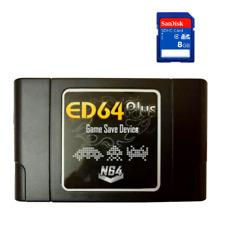|
January 11th, 2009, 12:37 Posted By: wraggster
Even Wii developers didn't know of the processor's existence. The presentation also touched on DVD playback, the possibility of subscription-based services, and the motivation behind hacking.
When the hackers composing Team Twiizers worked to bypass Nintendo's security measures on the Wii, they discovered several undocumented features of the Wii hardware.
One thing that they discovered was a previously undocumented processor in Nintendo's game player. This tiny processor, dubbed "Starlet" by the team of hackers, was embedded on the Hollywood graphics chipset and was described as a "full-fledged NEC ARM system-on-a-chip." Not even licensed Wii developers knew of the chip's existence or of its role in the Wii's security scheme. Nintendo's secrecy about the existence of the processor successfully hindered attempts to hack into the Wii until its discovery.
In hacking the Wii system, Team Twiizers also came across Nintendo's ticket scheme, which lets Nintendo authenticate whether software is allowed to run on the Wii or not. They pointed out that the tickets allowed Nintendo to save costs and distribute their downloadable software through conventional networks, since it prevented users from simply copying their virtual console titles and playing them on another console. Another thing they found was that these authorization tickets had an unused time-limit functionality. This functionality may be used in Hudson's upcoming Joysound Wii karaoke software in Japan, which offers timed subscriptions to its song library instead of permanent downloads.
Since the initial discovery of these tickets, they noted that Nintendo has released patches that have done a good job in preventing the specific problem of Virtual Console piracy.
Team Twiizers also discovered that Nintendo did support DVD playback in the console, but had disabled the functionality. Thinking that leaving the functionality in was an unintentional oversight, and since their goal did not involve DVD playback, they contacted Nintendo to warn them of the issue. However, Nintendo did not respond kindly to their attempts at communication.
Towards the end of the presentation, guest speaker Michael Steil took the stage to explain his beliefs on the motivation behind hacking into consoles. He heels that almost all initial attempts at bypassing the security measures of consoles are to run homebrew software on them. However, he also acknowledged that this has the harmful side effect of being used for piracy. He concluded by saying that console manufacturers would be best protected against hacks by making their systems open to hobbyist uses while still secured against outright piracy. He pointed out that the PlayStation 3, on which Sony openly allows users to install Linux, is the only current console that has not yet been hacked.
http://www.nintendoworldreport.com/n...fm?artid=17497
For more information and downloads, click here!
 There are 0 comments - Join In and Discuss Here There are 0 comments - Join In and Discuss Here
|
|
 NES
NES










